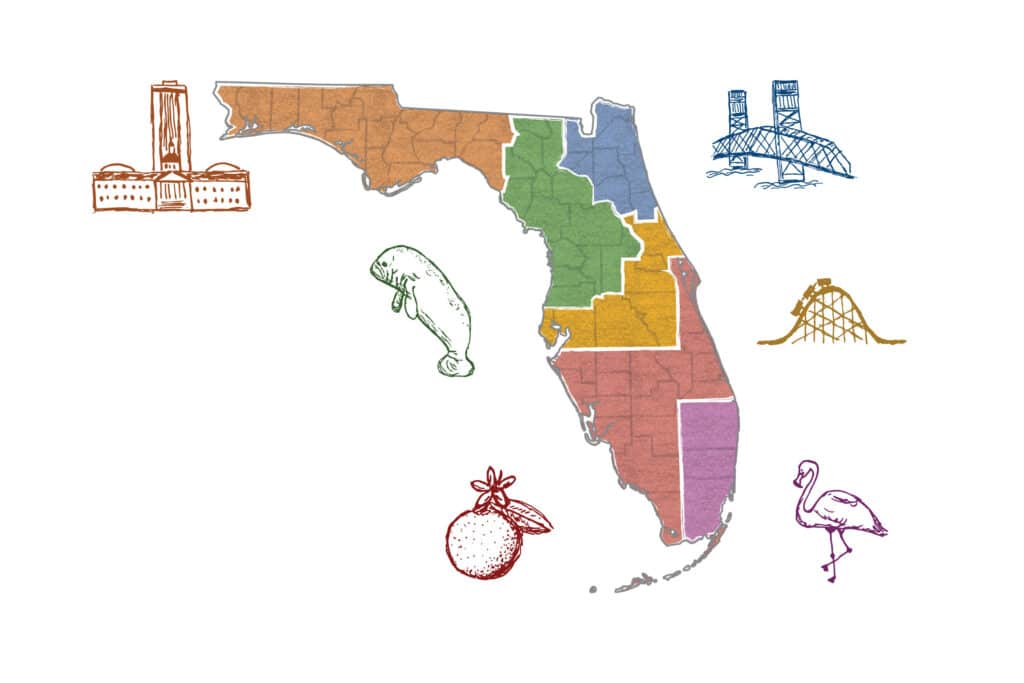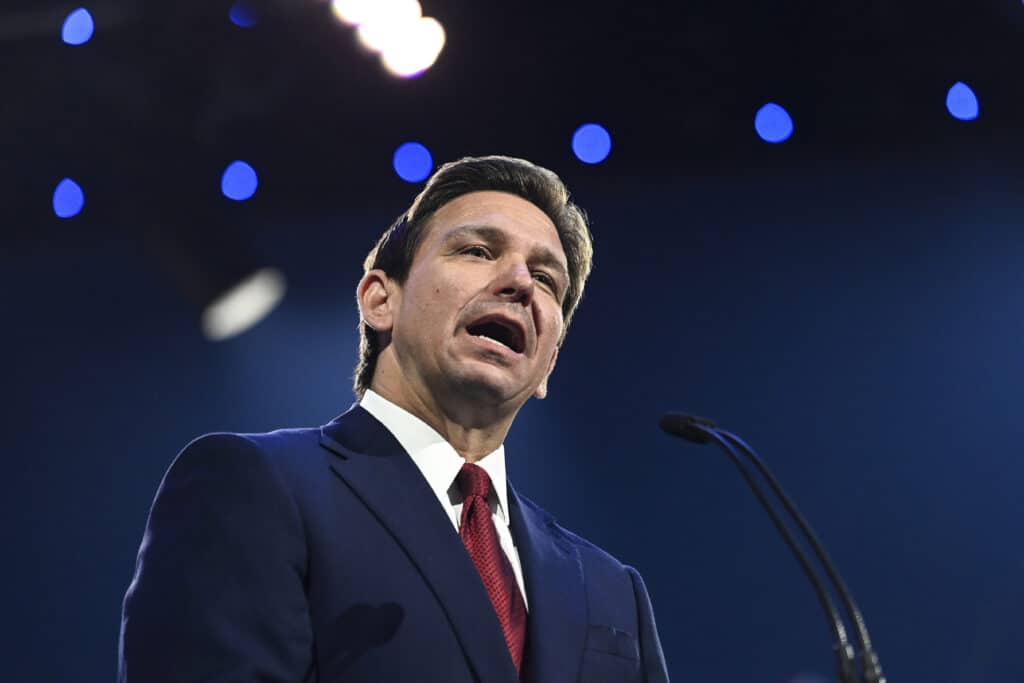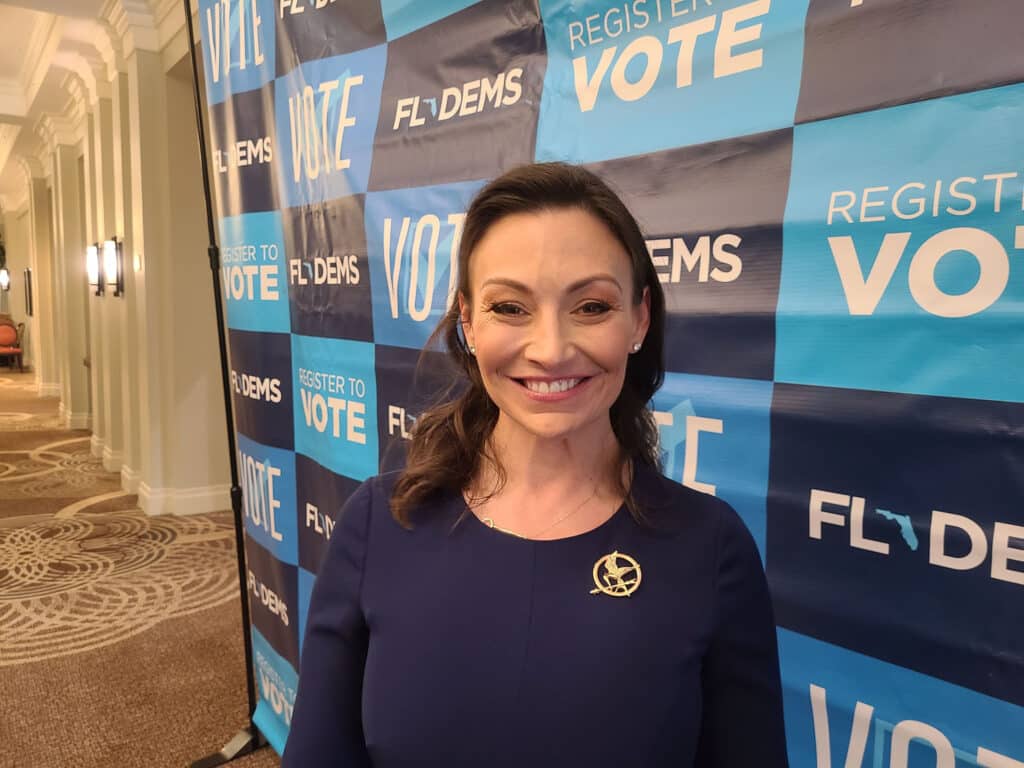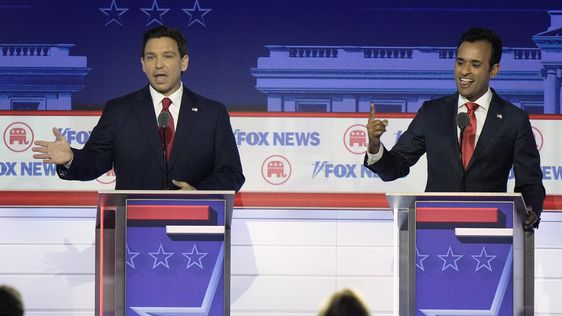Are you ready to uncover the intricate dynamics of Florida’s political landscape? Look no further than “Insights into Florida’s Political Scene.” This article will provide you with a comprehensive overview of the political happenings in Miami, Florida. Get ready to dive into the heart of the state’s political scene and gain a deeper understanding of the key players, pressing issues, and the latest developments shaping the Sunshine State’s politics.

Florida’s Political Climate
Florida’s political climate is diverse and dynamic, reflecting the state’s diverse population and ever-evolving political landscape. The state boasts a two-party system dominated by the Republican and Democratic parties. However, a variety of smaller parties and independent candidates also play a role in shaping Florida’s political scene.
State of political parties
The Republican Party has traditionally held a strong presence in Florida, with many key political positions held by Republicans. The party’s emphasis on conservative values and a limited government appeals to many Floridians, particularly in more rural and conservative-leaning areas of the state. On the other hand, the Democratic Party has a significant base of support in urban and densely populated areas, where progressive policies and social issues resonate with a more liberal voter base.
Major political issues
Florida faces a range of major political issues, including healthcare, education, environmental protection, and economic growth. Healthcare reform, in particular, has been a contentious issue in recent years, with ongoing debates over the Affordable Care Act and the expansion of Medicaid in the state. Education funding and improving the quality of schools remain hot topics, as Florida seeks to address the needs of its diverse student population. Additionally, environmental issues such as climate change and water management have gained significant attention, as Florida grapples with the impact of rising sea levels and the preservation of its natural resources.
Political scandals
Like any state, Florida has had its fair share of political scandals. From prominent elected officials facing corruption charges to campaign finance controversies, these scandals have occasionally rocked the state’s political landscape. While these scandals may temporarily capture the public’s attention, they also underscore the importance of holding elected officials accountable and maintaining transparency in the political process.
Key Players in Florida Politics
To understand Florida’s political landscape, it is essential to familiarize oneself with the key players who shape the state’s policies and political direction.
Governor
The Governor of Florida holds significant power and influence in the state’s politics. As the chief executive, the governor plays a crucial role in shaping policy initiatives and representing Florida at both the state and national levels. Understanding the priorities and positions of the governor is essential in comprehending the political landscape and the direction in which the state is headed.
Senators
Florida has two United States Senators who play a crucial role in shaping national legislation and representing the interests of the state at the federal level. These senators are elected to represent Florida’s diverse population and advocate for its needs and concerns on issues ranging from healthcare and immigration to national security and the economy.
Representatives
Florida’s congressional delegation comprises numerous representatives who serve in the United States House of Representatives. These individuals are elected to represent specific districts within the state and are tasked with crafting and passing legislation that directly impacts Florida’s residents. Understanding the roles and priorities of these representatives is essential for comprehending how Florida’s interests are represented on the national stage.
Political analysts
Political analysts and commentators play a vital role in shaping public opinion and providing insights into the complexities of Florida’s political landscape. Through their expert analysis and commentary, these individuals help shed light on the implications of political decisions, anticipate emerging trends, and foster a better understanding of the factors that shape Florida’s political climate.

Florida’s Voting Patterns
Examining Florida’s voting patterns offers valuable insights into the state’s political preferences and the various factors that influence voter behavior.
Demographics of voters
Florida’s population is incredibly diverse, representing a wide range of ethnic, racial, and socioeconomic backgrounds. Understanding how these demographics impact voter behavior is essential in deciphering Florida’s voting patterns. Factors such as age, race, education, and income all play a role in shaping how voters engage with the political process and make their electoral decisions.
Voting patterns in statewide elections
Florida has a reputation for being a battleground state in national elections, with the outcome often hanging in the balance. The state’s voting patterns in statewide elections fluctuate, with both Republicans and Democrats enjoying victories in various races. Analyzing historical voting patterns can provide insights into the shifting political dynamics and help identify key swing voters and regions that play a crucial role in determining electoral outcomes.
Factors influencing voting behavior
Numerous factors influence voting behavior in Florida. These can include party affiliation, candidate positions on key issues, campaign strategy, and even media coverage. Understanding the complexity of these influences helps explain how and why Floridians vote the way they do, as well as the potential for political shifts in the future.
Political Campaigns in Florida
Political campaigns in Florida are often high-stakes and fiercely competitive affairs, with candidates employing a variety of strategies to reach voters and gain support.
Campaign financing
Campaign financing plays a significant role in Florida’s political campaigns. Candidates must raise substantial funds to finance advertising campaigns, build grassroots networks, and mobilize voter turnout. Knowing the sources and amounts of campaign contributions is crucial in understanding the financial dynamics of Florida’s political landscape.
Use of media in campaigns
Media, both traditional and digital, have a significant impact on political campaigns in Florida. Candidates utilize television ads, radio spots, social media platforms, and other forms of communication to convey their messages, connect with voters, and shape public opinion. Analyzing how candidates utilize these mediums provides insight into their campaign strategies and tactics.
Campaign strategies
Successful campaigns in Florida often involve a combination of grassroots organizing, targeted messaging, and effective mobilization efforts. Understanding the strategies employed by candidates and their campaigns is essential in comprehending how they navigate the state’s diverse electorate and compete for votes.

Florida and National Politics
Florida’s position as a populous and politically influential state gives it a significant role in national elections and policymaking.
Florida’s role in national elections
Due to its large population and the competitive nature of its elections, Florida is often considered a bellwether state in national elections. The state’s electoral votes carry substantial weight, making it a battleground that attracts significant attention from candidates and campaigns. Analyzing Florida’s role in past elections helps project its potential impact on the national stage in the future.
Influence on national policies
With its diverse population and unique set of challenges, Florida often serves as a testing ground for policies that may have broader implications at the national level. Issues such as healthcare, immigration, and environmental protection are of particular significance, as policies implemented in Florida could potentially impact national discussions and policymaking.
Political implications for other states
Florida’s political landscape can have ripple effects that extend beyond its borders. Trends and developments in Florida politics often inform and influence the strategies and policies adopted by political campaigns in other states. Observing how other states respond to and learn from Florida’s unique political climate provides valuable insights into the broader political landscape.
Florida’s Political History
Florida’s political history is rich and varied, reflecting the state’s unique journey from colonization to statehood and beyond.
Early political developments
Florida’s political history traces back to its colonization by European powers, including Spain and Great Britain. During these early periods, the state underwent significant political transformations, as various governing bodies shaped its political structure and decision-making processes.
Milestones in Florida politics
Florida’s political history is marked by several significant milestones that have shaped the state’s political landscape. These include the admission of Florida into the Union, the establishment of the state’s first constitution, and key events and legislative changes that have influenced Florida’s political development.
Political figures from Florida’s history
Numerous political figures have emerged from Florida’s history, playing pivotal roles in shaping the state’s political landscape. From influential governors and senators to civil rights leaders and influential policy advocates, these individuals have left a lasting impact on Florida politics and continue to be recognized for their contributions.

Florida’s Political System
Understanding Florida’s political system is crucial in comprehending how the state’s government operates and how power is distributed among different branches and levels of governance.
State government structure
Florida’s government operates under a system of separation of powers, with three distinct branches: the executive, legislative, and judicial branches. The governor serves as the head of the executive branch, while the state legislature consists of the Senate and the House of Representatives. The state’s judicial system is comprised of various courts that handle civil, criminal, and administrative matters.
Role of local governments
Florida’s political system also incorporates local governments, including county governments, municipalities, and special districts. These local governments have the autonomy to craft policies and make decisions that directly impact their constituents within the confines of state and federal laws.
Checks and balances in Florida’s political system
Florida’s political system incorporates checks and balances to ensure that power is distributed and exercised responsibly. The balance of power between the executive, legislative, and judicial branches, as well as the existence of an independent judiciary, helps maintain accountability and prevent the concentration of power within any single branch of government.
Political Activism in Florida
Florida is a hub of political activism, with numerous organizations and interest groups working to shape policy and influence political decisions.
Political organizations and interest groups
Various political organizations and interest groups operate in Florida, advocating for specific causes, mobilizing voters, and seeking to influence political outcomes. These groups span a wide range of issues, including environmental protection, civil rights, healthcare, and education. Understanding the influence and strategies of these organizations is crucial in comprehending the broader political landscape.
Protests and demonstrations
From climate change rallies to civil rights protests, Florida has been the backdrop for numerous demonstrations and acts of political activism. These protests serve as a platform for citizens to voice their concerns, highlight injustices, and put pressure on political leaders and policymakers to address key issues. Analyzing the impact and outcomes of these protests provides insights into the power of grassroots movements in shaping political discourse.
Impact of grassroots movements
Grassroots movements in Florida have had a significant impact on policy outcomes and political discourse. Through their ability to mobilize and rally support, grassroots movements have succeeded in bringing attention to key issues and pushing for change. Examining the strategies and achievements of these movements is instrumental in understanding the potential for citizen engagement and political change in Florida.

Public Opinion and Politics in Florida
Public opinion plays a crucial role in shaping Florida’s political landscape, as citizens’ beliefs and attitudes inform their electoral choices and influence policymaking.
Polling and surveys
Polling and surveys provide valuable insights into the opinions and preferences of Florida voters. By asking a representative sample of the population about their views on key issues and political figures, polls and surveys help gauge public sentiment and predict electoral outcomes. Analyzing these measures of public opinion provides a snapshot of the political climate and the potential for future shifts in public sentiment.
Opinion on key issues
Florida’s diverse population holds a wide range of opinions on key issues. Public opinion differs on topics such as healthcare, immigration, gun control, and environmental protection. Understanding the nuances and variations in public opinion is essential in comprehending the political landscape and anticipating future policy debates.
Perceptions of political figures
Public perception of political figures can shape electoral outcomes and influence political decision-making. Florida residents hold varying opinions on political leaders, whether they be the governor, senators, or representatives. Analyzing the factors that shape these perceptions, such as policy positions, personal values, and media coverage, helps shed light on the voting patterns and the potential for political shifts.
The Future of Florida’s Political Landscape
Examining emerging trends and considering potential changes in political power provides insight into the future direction of Florida’s political landscape.
Emerging political trends
Florida’s political landscape is continuously evolving, with emerging trends shaping the state’s political discourse. These trends can include changing demographics, shifting voter preferences, advancements in technology, and evolving policy priorities. Analyzing these trends helps identify potential upcoming issues and anticipate shifts in political power.
Possible changes in political power
Floridians may witness changes in political power in the coming years due to shifting voter demographics, the rise of grassroots movements, and emerging political alliances. By closely monitoring these dynamics, observers can anticipate changes in Florida’s political alignment and the potential for new leaders and voices to emerge.
Predictions for upcoming elections
Predicting the outcome of upcoming elections is always a challenging task. However, by closely monitoring historical voting patterns, analyzing polling data, and considering emerging trends, observers can offer educated predictions on the future political landscape of the state. Understanding the potential for change and continuity provides valuable insights for those interested in the future of Florida’s political scene.
In conclusion, Florida’s political landscape is a complex and ever-changing mix of parties, issues, players, and voters. By understanding the state’s political parties, major issues, scandals, key players, voting patterns, campaign strategies, and the role of Florida in national politics, one gains a comprehensive perspective on the state’s political climate. Furthermore, exploring Florida’s political history, political system, activism, public opinion, and predictions for the future provides a well-rounded understanding of Florida’s political landscape, both past, present, and future.